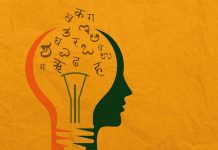This article is written by Tanushree Sharma and edited by Shoronya Banerjee from Amity University, Kolkata. This article briefly discusses the role of education in spreading education.
Table of Contents
Introduction
Education has always played a vital role in the development of society. From the past many years, education has been contributing in the field of technology, economic growth, employment, moderation, equity and social transparency. Nationalism on the other hand is the basic element of the ongoing industrial society that helps in homogenisation of knowledge, skills and discipline. Since independence in 1947, the nation has been breaking geographical barriers and bringing all the communities into close contact with each other. During those times, this idea was only a dream entailing the upcoming generations trying to reorient the vision of the nation and therefore, the emergency of noble institutions was aimed at imparting sound education. Considering the impact of education in nationalism, it has contributed towards the sharpening of national identity and strengthening of social cohesion.
Role of education in nationalism and nation-building in post-independence
It’s been 70 years of post-independence and education has undoubtedly contributed to nation-building since then. In the initial years of post-independence, every part of India exhibited different cultures wherein education contributed in uniting these cultures to hold the complete nation. Earlier, at the time of pre-independence british policy changed the educational system, according to their interest introducing institutional and centralised approach. In 1835, English Education Act was withdrawn from all forms of schooling including gurukuls.
Considering all the changing scenarios of pre-independence the government with the help of the Planning Commission of India introduced the concept of Five-Year Plans that focused mainly on achieving universal elementary education with special focus in the area of science, environment, morality and in every district of the state.
- Starting from the First Five Year plan (1951- 1956) that contributes 7.9% to education,
- Second Five Year plan (1956- 1961) that contributes 5.8% to education,
- Third Five Year plan (1961- 1966) that contributes 6.9% to education of the total layout plan and so on,
- The Eleventh Five Year plan (2007- 2012) was termed as ‘India’s Educational Plan’ by Prime Minister Manmohan Singh.
Post- Independence the government has also introduced different commissions to formulate the education policies in India. In 1948, the Education Commission was set under the Central Advisory Board of Education to produce young committed youth promoting national service and development. Only education can promote a sense of common citizenship, culture, integration and strengthening citizenship.
Other subsequent commissions named Radhakrishnan Commission in 1948 were formed with the objective of higher education in independent nations, Kothari Commission and Mudaliar Commission were formed to focus on national integration among school students.
With the ongoing working of commissions, the government striked the educational system by introducing the first University Education Commission of 1949 that worked on recognition of student services, structure of course, teacher recruitment and evaluation of technique and equipment recognitzation. The Second University Education Commission of 1952- 53 focused mainly on education on teachers.
In 1968, the National Integration Committee recommended that the entire education system should solve the purpose of unity, integrity, solidarity and belonging that contributes to democratic nation.
The policies continued to progress and in 1969, the resolution for National Policy of Education was formally issued by the government of India. This policy focused on educational ethics, integration and technology and was later revised in 1986.
Spreading nationalism through education
Nationalism is remarked upon as the feeling of freedom, patriotism, moral ideal and togetherness that accelerated among the Indians soon after the independence from British Raj, which has affected badly the culture, interest of local people and fundamental growth of the nation. Example: What compels the soldiers to give away their life for the sake of nation? It is the patriotic and nationalistic feeling for the country.
Nationalism must be regarded as the ongoing process that will not only contribute to the education sector of the future but will also keep the young generation connected to its roots of culture and socialism. It is important to introduce the student with a cultural history of nationalism at the initial stage of education because at the primary stage of education a student is more likely to learn and attain the knowledge of different fields, hence is not concise in its limited zone. The government shall start with relevant programs considering moral education to develop among individuals of nation the feeling of patriotic, oneself and nationalism specially for those sectors of society those who are underprivileged.
Another subsequent way of attaining socio-cultural education is through family values. Afterall, the student at primary stage is more likely to be affected by the acts of family which leads to ultimate upbringing of the child.
The Government has already been contributing its part for nationalism in India by introducing the Prevention of Insults to National Honour Act, 1981 by Parliament for the prevention of constitution, national anthem, national flag and national maps of India. Violation of above act is punishable for imprisonment of three years or fine or with both.
The ongoing process of inculcating high education in the independent youth of India since independence has already provided a lot to the educational system of the nation. Whether you talk about the area of science, technology, medicine or environmental growth. Today in the world of the 21st century, Indians have shown a significant increase in the number of engineers and doctors. These professionals are contributing to the development of the nation considering in whichever country the professionals are placed or working.
Indian perspective on education and nationalism
‘Education is our passport to the future, for tomorrow belongs to the people who prepare for it today’. It is rightly said that education is the foundation of development from the initial stage till the age of maturity. Coming to the practical aspects of investment in the education sector by the government are as follows-
- The budget of Rs. 94,853.64 crore has been outlayed for the education sector for financial year 2019-20 while the budget introduced for the financial year 2020-21 was Rs. 99,300 crore where Rs. 3,000 needs to be deferred to skills development in the year 2021;
- The policy focus on both school and higher education with better governance system of research and innovation;
- The government has proposed the programme for young engineers that would be providing them with opportunities;
- Medical colleges should be provided with district hospitals to deal with the problem of shortage of doctors;
- Announcement for setting up National Research Foundation (NRF) to fund and promote research in the country;
- Eligible students can avail the full fledged degree of top 100 ranked colleges through online education;
- Global Initiative of Academic Network (GIAN) programme in higher education has been started to upgrade the quality of teaching for researchers and scientists;
- Special academic courses need to be defined for nurses, teachers, paramedical staff and caretakers;
- Also steps have been taken to attract Foreign Direct Investment (FDI) and commercial borrowings in the education sector.
The idea of nationalism is associated with the principle of ‘self-determination’. The feeling of nationalism is not limited to particular religion, caste or community in fact it requires oneness, diversity and pride towards the nation. If we talk about recent scenarios nationalism has been used as a tool of exploitation in the following areas-
- Nationalism is used in acquiring votes in the elections i.e. Political parties making promises to people for uniting and composing the independent state;
- Religious nationalist uses moral appeals to advance anti-corruption in economy;
- Majoritarian nationalism is being betrayed by religious politics where national identity has been defined in such a manner that excludes religious minorities.
International comparison
Nationalism often seeks to preserve and foster the ‘traditional culture’ of the nation. Ideologies of nationalism are based on socialism and conservatism. Considering the pace of nationalism in other countries apart from India are as follows:
Nationalism in China
The roots of nationalism in China is from different ideologies and different periods of history. Nationalism has transformed the views of Chinese Communist Party (CCP) and helped in securing its legitimacy. In 1990, CCP was mandated to introduce the patriotic curricular material in the education system for the Chinese youth.
In 1994-95, the nation wide patriotic education campaign was launched to renew the domestic form of education. In 2016, it was argued by the authors with the members of CCP that teaching historical education does not guarantee patriotic sentiments among the individuals of the nation? Hence, the idea of nationalism has significantly promoted among the members of CCP to become sensitive to public opinion and the opinion of educated youth of the nation. Nationalism in China has resulted in the defeat of opium war, division of chinese territory among foreign powers and wake up from ignorance and wrong doings in the nation.
In the 21st century, China has depicted that the educational background among high school students has a limited effect in promoting nationalism. Minimal effect has also been found by researchers in the use of textbooks for history education which are important for sharpening sentiments among the students and the practise of visiting schools for patriotic education. Traditional form of education has been replaced by informative sources i.e. internet, mass media, culture that has enlarged the shape and vision of historical views.
Nationalism in Germany
Examining the national goals of education in the history of Germany that is more related to identity and multiperspectivity. Educational system in Germany has been more focused on political education, social reforms to inculcate the sense of responsibility among individuals and lessons of citizenship applicable on democratic society.
In regard to the nation’s goal of identity, focus was placed on transition from homogenous identity to the cultivation of individual identity within the boundaries of a nation. In the process to increase the awareness of the nation’s responsibility, the focus was placed on colonization and war in the textbooks of Germany. Scholars too, suggested national identity through the construction of their educational articles. Therefore, Germany seems to lack an explicit promotion of a unified nation but educational trends seem to have emerged as a new identity frame of the nation.
Nationalism in Japan
The development of goals of education has been significant in Japan. In the post- independence period the Fundamental Law of Education was established to focus on basic education of every citizen of Japan. Education was established as the freedom and expression of individuals rather than control and conformity of duty. Scholars stressed upon the handling of party by the liberal democrats, which summarises the education as-
- means of economic and industrial development;
- strengthening of leadership of central government in education and;
- a political tool for national solidarity and stability.
Fundamental Law of Education was revised in 2006 and highlighted that “student’s cultivate an attitude that respects tradition and culture and love of the national homeland that has fostered them.”
The main goal of pre-independence nationalisation was to stimulate growth at personal level with advancement in the nation at government level. As compared to Germany, Japan has been following the more concrete trend of shaping the identity of the nation. Therefore, respect for tradition, culture and love for national unity was remarked as the official goals of the education system of Japan.
Conclusion
Nationalism worked as an interlink between territory and its individuals. Education on the other hand plays a major role in molding citizens according to the needs of the territory. Considering the role of Indian government in the post-independence period, it has already been coming up with various schemes in maintaining the ongoing scenario of nationalism and education from the past 70 years.
On comparing the international efficiency of nationalism and education in other nations, it is concluded that education has always been an integral part in promoting nationalism in the post-independence period. Rather not only did nationalism play a vital role in India after independence but it is continuously enhancing the scope of the education system in the nation by cultivating the interests of individuals in that of the national interests.
LawSikho has created a telegram group for exchanging legal knowledge, referrals and various opportunities. You can click on this link and join:
 Serato DJ Crack 2025Serato DJ PRO Crack
Serato DJ Crack 2025Serato DJ PRO Crack











 Allow notifications
Allow notifications


